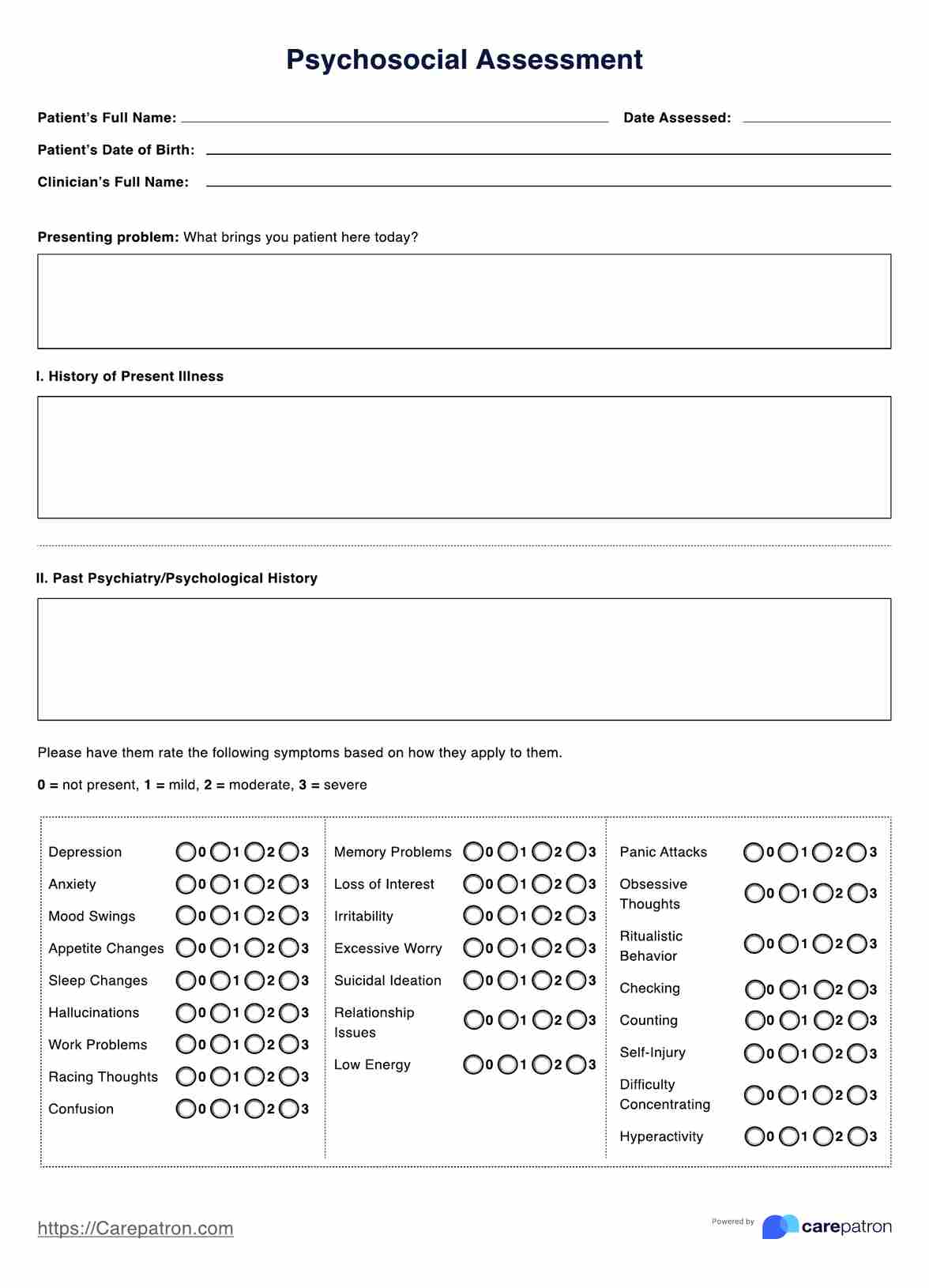Examples of Psychosocial Assessment include evaluating an individual's mental health, social support system, coping mechanisms, and overall well-being. This may involve assessing factors such as mood, anxiety symptoms, stress levels, relationships, living situations, financial stability, and access to community resources. Psychosocial Assessments can also explore an individual's cultural, spiritual, and educational background, as well as any history of trauma or adverse life events.

Psychosocial Assessment
Conduct a psychosocial assessment to gauge a patient’s mental and social well-being and create a therapy plan that restores them to a better state physically, mentally, and socially.
Psychosocial Assessment Template
Commonly asked questions
Typical questions asked during a Psychosocial Assessment may include: How would you describe your current mood and emotional state? Do you have a support system of family and friends? How do you typically cope with stress or difficult situations? Have you experienced any significant life changes or traumatic events recently?
Psychosocial Assessments are conducted to gain a comprehensive understanding of an individual's overall well-being and identify any potential social, emotional, or environmental factors that may impact their health and functioning. This information is crucial for developing a personalized care plan that addresses the individual's unique needs and helps them achieve their desired outcomes.
EHR and practice management software
Get started for free
*No credit card required
Free
$0/usd
Unlimited clients
Telehealth
1GB of storage
Client portal text
Automated billing and online payments











